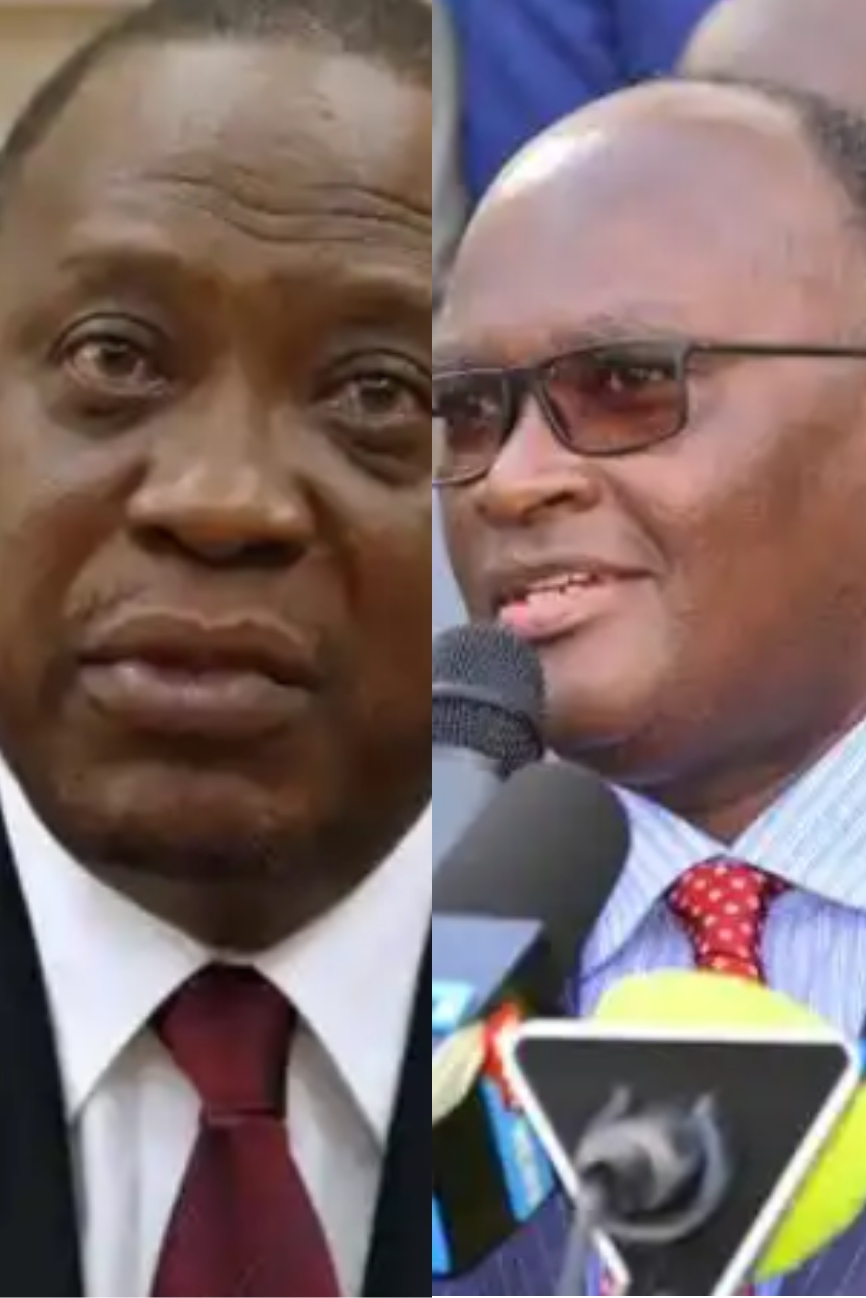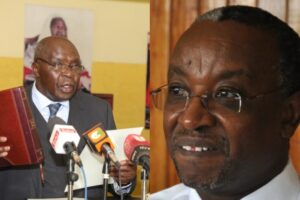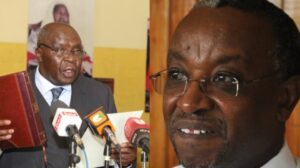In recent years, Kenya’s infrastructure has been heavily influenced by the decisions of former President Uhuru Kenyatta and former Transport Cabinet Secretary, James Macharia.
These two leaders were instrumental in the execution of some of the country’s most ambitious projects, many of which were handed to Chinese firms like the China Road and Bridge Corporation (CRBC).
However, behind these grand projects lies a complex web of relationships and financial dealings that raise serious questions about the true beneficiaries of Kenya’s development agenda.
Under Uhuru Kenyatta’s administration, infrastructure became a central pillar of his legacy.
Major projects like the Nairobi Expressway, the Standard Gauge Railway (SGR), and the Lamu Port were all launched during his tenure, with James Macharia playing a key role in their implementation.
The Nairobi Expressway, in particular, was championed by both Kenyatta and Macharia as a solution to Nairobi’s notorious traffic problems.
However, reports have emerged suggesting that the CRBC, the Chinese company contracted to build the expressway, might not be a purely foreign entity.
Allegations have surfaced that CRBC and its subsidiaries are, in fact, locally owned with strong ties to powerful Kenyan individuals, including those within the government.
The connection between Uhuru Kenyatta and James Macharia in this context becomes crucial.
As president, Kenyatta had significant influence over the allocation of contracts and the selection of foreign partners for these large-scale projects.
Macharia, as the Transport CS, was responsible for overseeing these contracts and ensuring that the projects were executed as planned.
However, the close relationship between the two men and their involvement in these projects raises concerns about potential conflicts of interest.
Critics argue that the deals with Chinese firms, particularly CRBC, were structured in a way that allowed for significant financial benefits to flow back to Kenyan elites.
The fact that these firms might be locally owned, despite being registered in China, suggests that the contracts were not competitively awarded but rather engineered to benefit a select few.
This would mean that the billions of shillings borrowed from Chinese banks to finance these projects are essentially enriching Kenyan insiders under the guise of foreign investment.
Moreover, the growing public debt associated with these projects adds another layer of controversy.
Much of Kenya’s current debt burden is tied to loans from China, which critics claim were taken under unfavorable terms.
These loans are often secured by Kenya’s natural resources or future tax revenues, creating a scenario where the country’s financial independence could be at risk.
The suggestion that some of this debt may have been incurred to benefit a small group of powerful individuals, including those close to or maybe Uhuru Kenyatta and James Macharia, is deeply troubling.
This situation calls for greater scrutiny of the relationships between Kenyan leaders and foreign contractors.
The close ties between Kenyatta, Macharia, and the Chinese firms involved in Kenya’s infrastructure projects point to a potential misuse of public office for private gain.
The legacy of these projects and the leaders who championed them will likely be a subject of intense debate and investigation.





















Add Comment